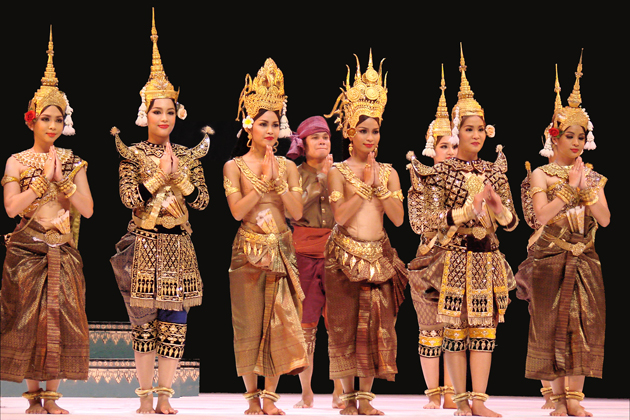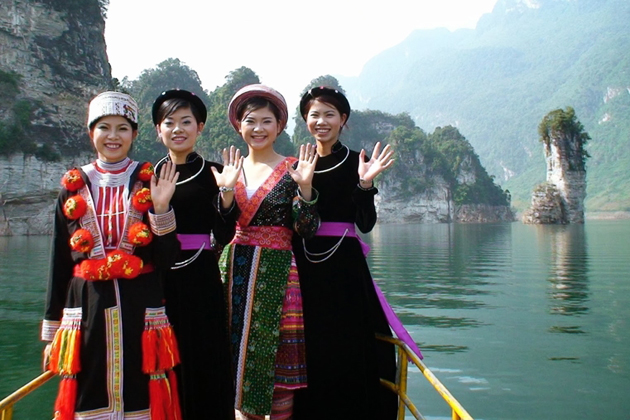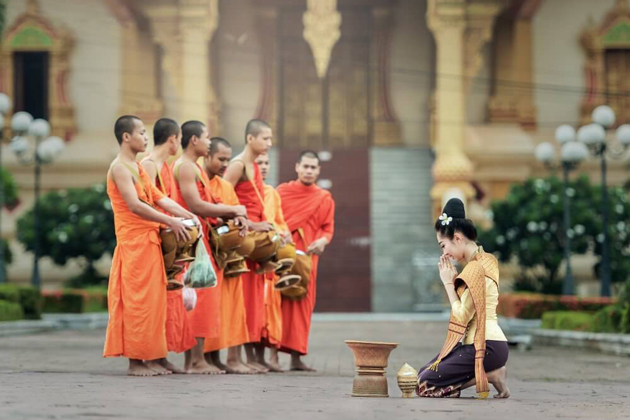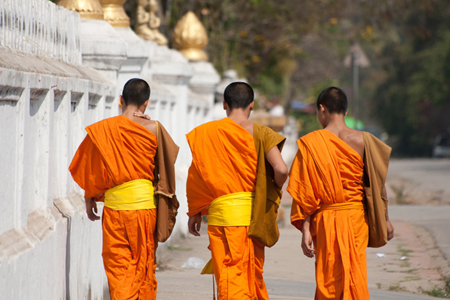In a packaged Indochina tour, travelers should be conscious of the countries’ must-know social rules since no one wants to displease the friendly inhabitants due to the lack of basic knowledge of local etiquettes. For better communication with the residents of 3 captivating countries, acknowledge yourself with the lists of proper must-follow manners as recommended below.
In Cambodia
In order to act as a local Cambodian people, remember to follow these rules:
1. Control your temper in public. Shouting, criticizing or raising the voice in public is not welcomed in Cambodia for the reason that Cambodian consider those actions as rude and embarrassing. Hence, do keep calm and not get angry at others whether the situation is bad.
2. Never forget to save face. Like in others Asian nations, indirect communication is highly appreciated in Cambodia. This features are shown in the daily activities, especially in the interaction from person to person. For instance, if a tourist are given a present, firstly deny it and only accept it fervently by both hands until the giver forces the receiver to take the gift. The rule can work wonders to facilitate your great tour to Indochina.
3. Be careful with the hands. Only use the right hand to do anything including eating, greeting or directing. According to Cambodian intellection, it is not accepted to taste the foods with the left hand for the reason that it is primarily used for unclean duties, especially in the bathroom or the lavatory. It is rude to point at the others by the index finger, use the right hand palm instead to avoid the impoliteness.
4. Greeting like the locals. To do Sampeah - the long-established way of Cambodian greeting, lightly make a bow after keeping the right and left hand palm together and close to the chin. The respectful level to the opposite person is shown through the position of the hands. Only shake hands if the locals suggests first.

5. Don’t touch someone’s head. It is said that the most honored part of the human body is the head, so head touching is regarded as a resentful action to the residents.
6. Avoid PDA. In Asian cultures, people greatly respect the gender differences; therefore, public displays of affection between 2 different genders is not allowed in the public places. Consider carefully not to hug or kiss your partners when touring Cambodia.
7. A gift is a must for home visits. Don’t forget to prepare in advance a gift, especially flowers and fruits for the house owners if you are invited. Use two hands to give the present.
8. Follow the rules of temples or pagodas. Sightseers should take their hats and shoes off to come inside the temples. Also, only take a seat next to a monk after he sat down. Female tourists should not touch the monks.
To respond to the warmly reception of Vietnamese, travelers should familiarize with conventional customs.
1. Distance from PDA. Kissing, holding hands or hugging a person from the opposite sex is banned in Vietnam. The emotional expressions are seen as private actions in this country and extremely comical to be shown at the public areas.
2. Respect the elderly. In many circumstances, the first one to be greeted, served meals is the oldest person. Never eating or taking a seat before the oldest individual or the head of the family did the actions first.

3. Consume the foods by the Vietnamese customs. If you receive an invitation to have dinner with the locals, remember to wait until you are shown the seat. In the dinner, sit down after the oldest one had a seat. Finish all the foods served by the hosts, try all the dishes cooked by the host. Place the chopsticks on the right side of the bowl after the meal is completed.
4. Bring gifts when visiting the inhabitants. It is suggested to take fruits, flowers as lovely presents for the hosts of the house. However, never buy chrysanthemums and handkerchiefs because they are regarded as bad luck.
5. Greet properly. Traditionally, Vietnamese place the right hand overlap another near the stomach and then slightly make a bow. However, hand shaking or nodding is becoming more and more common in Vietnam.
6. Dress smartly. Vietnamese men and women have to wear polite and smart clothes. Female travelers should put on modest and non-revealing clothes and light make-up, men should be clothed in neat shirts and groomed costumes. Remember to wear smartly and avoid short skirts or torn jeans when visiting any pagoda or temple.
Must-know Laos etiquette includes:
1. Follow Laos greeting. It is uncommon to shake hands with the Laos. Alternatively, only lightly bow along with saying: ‘Hello’. It is not accepted to greet people with affection in public, especially with the locals of the same gender.
2. Be polite in public. Showing the respectful expression by staying away from affections in the public areas because the residents don’t widely accept the public affections between women and men.

3. Pay attention to the proper dress code. Entering the government offices, temples or administrative buildings, it is important to dress appropriately and tidily. Revealing costumes involving shorts and camisoles are not allowed to go inside those grave places.
4. Asking before taking a photo. It is rude to have a photo taken without the locals’ permission. Remember to ask for their acceptance to take a shot of breathtaking sceneries easily.
5. Give gifts in special visits. Presents wrapped in green or red papers such as stamps or calendars should be given for the person with the highest position in the invited party. It is unsuitable to prepare shoes and socks as a present because the feet is not the revered body part. Don’t choose to wrap the gifts in white wrapping paper to avoid the unluckiness for the hosts.
6. Respond to the goodness. It is advised to pay the next meal after being invited to a meal hosted by the Laos because the locals rarely ask the guests to share the bills.
Get the above beneficial information well in hand to hand-carry an unforgettable trip for a lifetime.


